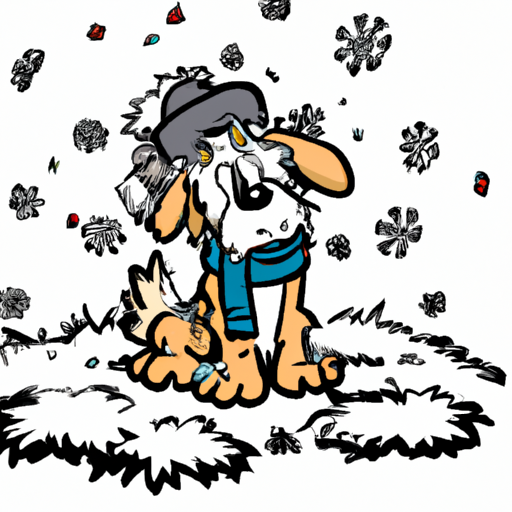Understanding Your Dog’s Coat
As a dedicated caregiver, you might have noticed your dog shedding more than usual during the winter months and wondered why that’s the case. To comprehend this, it’s vital to understand your dog’s coat. Dogs have two types of fur—undercoat and topcoat. The undercoat is fluffy and serves as insulation, while the topcoat is waterproof and shields your dog from sun or rain.
Dogs shed in winter to allow their new, thicker fur to grow, providing them with the necessary insulation against the cold. This process is known as “blowing coat.” However, the extent of shedding depends on the breed and overall health of the dog.
Factors Influencing Winter Shedding
Now that you understand why dogs shed, let’s delve into the specific factors that influence winter shedding:
-
Breed: Not all dogs have the same type of fur. While breeds like the Siberian Husky have a thick undercoat that sheds heavily in winter, others like the Dalmatian have a single coat that sheds consistently all year round.
-
Indoor Heating: Indoor heating in homes can cause dogs to shed more. The warm temperatures can trick their bodies into thinking it’s summer, causing them to shed their winter coat prematurely.
-
Health and Diet: A dog’s health and diet can significantly affect its shedding. Poor nutrition, allergies, or medical issues can lead to excessive shedding.
Tips to Manage Winter Shedding
Here are some tips to help you manage your dog’s winter shedding:
- Regular brushing: This can help keep the shedding under control and prevent matting.
- Balanced diet: Ensure your dog’s diet is rich in proteins and omega fatty acids to maintain a healthy coat.
- Regular vet check-ups: This will ensure any health issues causing excessive shedding are identified and addressed promptly.
When to Seek Vet Help
While shedding is a natural process, excessive shedding could be a sign of underlying health issues. If you notice any of the following, it’s time to seek vet help:
- Bald patches
- Skin irritation or redness
- Changes in behavior, appetite, or water consumption
- Unexplained weight loss
FAQ: Winter Shedding in Dogs
Q: Do all dogs shed in winter?
A: While most dogs shed, the degree varies from breed to breed. Some dogs have hair that grows continuously and sheds minimally, like the Poodle.
Q: Can I prevent my dog from shedding?
A: Shedding is a natural process that can’t be entirely prevented. However, regular grooming and a balanced diet can help manage it.
Q: Is shedding a sign of illness?
A: While shedding is normal, excessive shedding can be a sign of underlying health issues. If you’re concerned about your dog’s shedding, it’s best to consult a vet.
Remember, as a caregiver, it’s your responsibility to ensure your dog’s well-being. Understanding their shedding patterns and managing it effectively can help keep them comfortable and healthy, especially during the harsh winter months.



